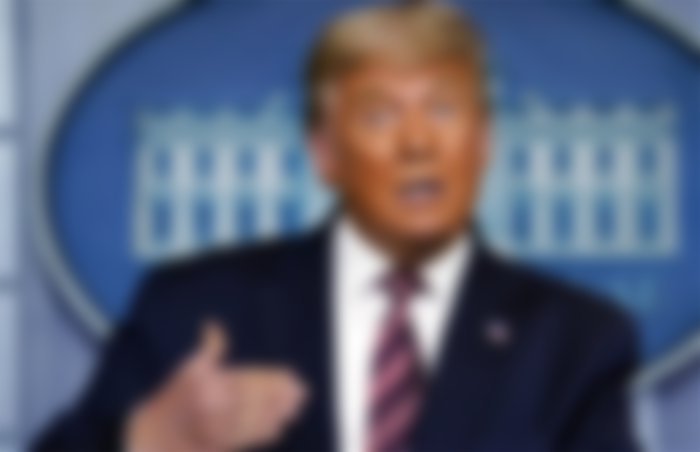When the world celebrated the birth of a new decade with fireworks on January 1, no one dreamed of what 2020 would turn into. The coronavirus pandemic has killed more than 1.7 million people, nailed four billion to their homes, distorted social life, brought economies to their knees, caused global anxiety and sparked an unprecedented race for the vaccine.
It was a year that changed the world like no other before World War II.
The U.S. presidential election, the birth of a new human rights movement in that country, and the death of the Argentine football god have fallen a distant background.
At least 76 million people have been infected with the dangerous virus, although the actual number is probably much higher. Horrific testimonies of struggling for breath and dying in solitude shook the world, and doctors and nurses did their best under unprecedented pressure
Physical distance, face masks and hand disinfectants replaced intimacy, hugs, kisses and handshakes. The world has learned a new concept - lockdown.
Unknown pneumonia!

Covid-19 is by far the deadliest pandemic in history. The plague wiped out a quarter of the population in the 14th century. At least 50 million people succumbed to the Spanish flu a hundred years ago. Thirty-three million people have died of AIDS.
But for a coronavirus infection, it is enough to just breathe in the wrong place at the wrong time.
The level of the global catastrophe was unimaginable when Chinese authorities on December 31 reported 27 cases of “pneumonia of unknown origin” that confused doctors in Wuhan.
The next day, the live animal market, which was associated with the infection, was quietly closed. Chinese scientists announced on January 7 that they had identified a new virus, and four days later its first victim fell.
Countries soon set out to evacuate their citizens from China, and borders began to close. Fifty million people in Hubei province have been put ‘under the padlock’.
Fear began to spread throughout the world. The WHO called the disease covid-19 in February, and in mid-month the first death was reported in Europe, in France. Not long after, the Old Continent watched in horror as the Italian northern province of Lombardy sank into agony.

From Bergamo came photographs and footage that freeze blood in the veins: coffins with the dead loaded into military trucks transporting them under cover of night to other Italian regions because the crematorium there did not arrive to cremate so many dead.
Half the world behind closed doors
The WHO declares a pandemic in March, and US borders, already closed to China, are closing for much of Europe. For the first time in peacetime, the Olympic Games were canceled.
By mid-April, 3.9 billion people, half of humanity, were in some sort of quarantine. From Paris and New York to London and Buenos Aires, the silence on the streets was broken only by the sound of ambulance sirens.
Scientists have been warning for decades about the impending global pandemic, but few have listened. Some of the richest countries in the world, and especially the poor, have succumbed to the invisible enemy. The supply chain was disrupted, panicked purchases emptied shelves, and chronically underfunded health care emerged brutally.
Intensive care units were overrun, and underpaid and overworked medical staff, global heroes of the year, battled the virus without sufficient protective equipment. In New York, the city with the most billionaires, doctors were filmed carrying garbage bags instead of protective suits.
The offices are closed. Schools and colleges the same. Sports events have been canceled. Shops, bars, restaurants locked. Air traffic suspended. The Spanish ‘lockdown’ was so tough that children were forbidden to leave the houses.
Those who could, worked in the house. They met and had fun through Zoom. Many were fired, the interaction between people took place via Plexiglas. Domestic violence and mental problems have increased.

The United States, the world's largest economy and a country without universal health insurance, quickly became the most affected nation. More than 320,000 people died there as President Donald Trump mitigated the danger and raved nonsense about injecting disinfectants.
A skeptic in the White House himself ‘earned’ the coronavirus and spent a few days in the hospital. British Prime Minister Boris Johnson went even worse and had to receive oxygen in the intensive care unit for some time because of covid. At the end of the year, French President Emmanuel Macron also announced that he was infected.
Proof that the powerful, famous and rich cannot buy immunity to the infection are also Tom Hanks, Cristiano Ronaldo, Novak Djokovic, Madonna, Prince Charles and the Monegasque Prince Albert.
In absolute numbers, after the USA, the most affected countries are Brazil and India with 190 thousand and 150 thousand infected, respectively, but in the number of dead per million inhabitants, Europeans, Belgians, Italians, Slovenes and Spaniards suffered the most.
China, the country from which the virus originated, successfully curbed it with draconian measures and today people live there normally.
At the end of the year, additional alarm and the severance of transport links with Britain were further caused by a new strain of the virus that began to spread there.
The vaccine race!

In mid-January, Chinese scientists sequenced the virus’s genome and shared their discovery with colleagues around the world. The race to find a vaccine, the only solution to stop the pandemic, has begun.
It takes an average of 10 to 15 years to develop a vaccine, pass tests, get a license and start mass production, but now there was no time for that and huge financial resources have been invested in research, so all knowledge and technology are harnessed to the same goal.
Shortly after sequencing the genome of the virus, the first trials of potential vaccines in humans began. They were led by Pfizer and BioNTech, AstraZeneca and Moderna who developed vaccines more than 95 percent effective.
Russia registered the world's first covid-19 vaccine, Sputnik V, in August, although the third phase of clinical trials has not been conducted, and mass vaccination of Muscovites with the vaccine began in early December.
The UK and the US officially approved the Pfizer vaccine and also launched a mass vaccination program, followed by the EU. The Americans, meanwhile, also approved the Modern vaccine.
Trump vs. Biden!

The election year in America began with a failed attempt to ‘impeachment’ President Donald Trump. The Republican majority in the Senate flatly rejected such a decision by the Democratic majority in the House of Representatives in January.
Populist Trump was certainly not the favorite in the November presidential election, but he had a good chance of repeating the surprise from four years ago.
However, denying the threat of a pandemic, a catastrophic reaction to the spread of the virus across America, the accompanying economic downturn, inciting racial tensions, verbal aggression and provoking divisions in the country cost him another four years.
In February, few believed that the person who would beat him would be called Joe Biden. The veteran of American politics and Obama's vice president went to the Democratic primary with three defeats, but 'got away' at the last minute with a victory in North Carolina, got the wind in his back and finally got the nomination.
The Nov. 3 election was tight, the winner unknown on election night, but as confirmations began to arrive in Biden's account in the following days that he had conquered key states of Michigan, Vermont, Pennsylvania, that he had surprised in Arizona and Georgia, he was on the streets the celebration of Biden's supporters began.
With 306 electoral votes, he became the 46th, and at the age of 78, the oldest American president. Kamala Harris is the first vice president in history.
Trump is in a state of denial even today. Although his lawsuits have all failed in the courts, and all the prominent Republicans have recognized the new president, he still says without any evidence that he was deceived.

Mass protests against racism and police brutality led by the Black Lives Matter movement exploded in the U.S. in late May after a white police officer killed a black man, George Floyd, in Minnesota during an arrest.
Floyd has said more than 20 times that he could not breathe before he died during a brutal police arrest. The white policeman pressed his knee against his neck for almost nine minutes. He was later charged with murder.
The video of Floyd’s assassination horrified and terrified Americans, sparked protests, riots and clashes with police, and sparked a national debate on racism and police violence. The wave of protests against racism and police brutality then spread around the world.

Clashes between Azerbaijan and Armenia over the Nagorno-Karabakh region, an Armenian enclave that seceded from Baku during the 1990s war and declared independence, erupted in late September.
Six weeks of fighting in which the Azerbaijani army overpowered Armenian forces ended with a peace deal that allowed Armenia to cede large parts of the region to a regional rival, which was declared a victory in Baku.
The Afghan government and the Taliban have reached a preliminary agreement on peace talks, their first written agreement in 19 years of war. It only paves the way for further talks, but is seen as a step forward as it will allow negotiators to move on to more specific issues such as establishing a truce.
Israel and the United Arab Emirates have reached a historic agreement with the mediation of the United States that will lead to the full normalization of diplomatic relations between the two countries. Israel has so far had no diplomatic relations with the Gulf countries, but informal talks have been held over common fears of growing Iranian influence in the region.

The Russians tried to assassinate opposition leader Alexei Navalny on August 20 using tried methods, poisoning a newcomer. He is believed to have been poisoned by tea at a hotel or airport. Two days later, Russian authorities allowed him to be transported from Omsk to Berlin's Charite Hospital, where doctors determined "undoubted poisoning".
Navalny recovered after a month, and the Kremlin, as usual, denies any involvement in the case.

After more than three years of negotiations and turmoil, the United Kingdom officially left the EU on the last day of January. "This is not the end but the beginning. Dawn is breaking," then-Prime Minister Boris Johnson said in a video message. In the country, reactions were divided. There were many celebrants in the streets, but also equally protesters.
Shortly after Britain left the EU, Harry and Meghan left Britain.
The world’s most famous royal family, the Windsors, found themselves in the spotlight again when the Duke of Sussex and his wife Meghan Markle decided to leave the royal court out of a desire to be financially independent and living between California and England.
Their move shocked many. From Harry's statements, it can be inferred that they are fed up with the relationship of the British tabloids, especially because the prince is still sensitive to the fact that his late mother Diana was persecuted by journalists.
Harry and Meghan along with little son Archie ceased their royal duties and first moved to Canada and then to Los Angeles where they are today.
Departure of the best!
This year, the world said goodbye to some of the best, with the football god, the favorite Bond, the basketball mamba and the last star of the golden age of Hollywood.

It took Diego Maradona four minutes to score the two most famous goals in the history of football with his left hand and left foot. The first was deception, the second was perfection.
Two moves that seem to symbolize Diego’s life path that ended in November at the age of 61, his vices and ingenious skills, success and diversion. In Argentina and Naples, they mourned for days because of the departure of "the most human among the gods."

Scottish film acting legend Sean Connery, the sleek, sexy and sophisticated British secret agent James Bond, has died at the age of 90. From “Dr. Noah” to “Never Say Never,” Connery has played Bond seven times and so no successor has been better.
Tall and handsome, with a deep and sonorous voice, Connery, who was on the verge of his sixties when People declared him the sexiest in the world, played a number of other significant roles and won an Oscar for his role in "Untouchables."

Actor Kirk Douglas, the last big star of golden Hollywood and one of his greatest fighters against injustice, died in early February at the age of 103. He acted in about a hundred films, and "Spartak" from 1960 made him a world star.
Rebellious and stubborn, at the time of the McCarthyist witch hunt, he fought a battle to abolish the Hollywood blacklists and defiantly signed the name of the screenwriter he was not allowed to do at the ‘peak’ of the film.

The NBA’s fourth-best scorer and five-time winner Kobi Bryant, a black mamba, was killed in a helicopter crash in California in January. The tragedy resonated further because his 13-year-old daughter was also on the plane.

One of the most famous composers of film music, maestro Ennio Morricone, writer of the most tense spy novels John Le Carre, once the fastest pilot Chuck Yeager and one of the best guitarists Eddie Van Halen also died this year.
All in all a year to be forgotten as soon as possible.














my comment popping up as spam :) nice read.cash